WARRING OVER VALOR
WAR CULTURE
Edited by Daniel Leonard Bernardi
Books in this series address the myriad ways in which warfare informs diverse cultural practices, as well as the ways cultural practicesfrom cinema to social mediainform the practice of warfare. They illuminate the insights and limitations of critical theories that describe, explain, and politicize the phenomena of war culture. Traversing both national and intellectual borders, authors from a wide range of fields and disciplines collectively examine the articulation of war, its everyday practices, and its impact on individuals and societies throughout modern history.
Tanine Allison, Destructive Sublime: World War II in American Film and Media
Brenda M. Boyle and Jeehyun Lim, eds., Looking Back on the Vietnam War: Twenty-First-Century Perspectives
Jonna Eagle, Imperial Affects: Sensational Melodrama and the Attractions of American Cinema
H. Bruce Franklin, Crash Course: From the Good War to the Forever War
Aaron Michael Kerner, Torture Porn in the Wake of 9/11: Horror, Exploitation, and the Cinema of Sensation
David Kieran and Edwin A. Martini, eds., At War: The Military and American Culture in the Twentieth Century and Beyond
Delia Malia Caparoso Konzett, Hollywoods Hawaii: Race, Nation, and War
Nan Levinson, War Is Not a Game: The New Antiwar Soldiers and the Movement They Built
Matt Sienkiewicz, The Other Air Force: U.S. Efforts to Reshape Middle Eastern Media Since 9/11
Jon Simons and John Louis Lucaites, eds., In/visible War: The Culture of War in Twenty-First-Century America
Roger Stahl, Through the Crosshairs: The Weapons Eye in Public War Culture
Simon Wendt, ed., Warring over Valor: How Race and Gender Shaped American Military Heroism in the Twentieth and Twenty-First Centuries
WARRING OVER VALOR
How Race and Gender Shaped American Military Heroism in the Twentieth and Twenty-First Centuries
EDITED BY
SIMON WENDT
RUTGERS UNIVERSITY PRESS
New Brunswick, Camden, and Newark, New Jersey, and London
Library of Congress Cataloging-in-Publication Data
Names: Wendt, Simon, editor.
Title: Warring over valor : how race and gender shaped American military heroism in the twentieth and twenty-first centuries / edited by Simon Wendt.
Description: New Brunswick : Rutgers University Press, [2018] | Series: War culture. | Includes bibliographical references and index.
Identifiers: LCCN 2017060240| ISBN 9780813597546 (cloth : alk. paper) | ISBN 9780813597539 (pbk. : alk. paper) | ISBN 9780813597553 (epub) | ISBN 9780813597577 (web pdf)
Subjects: LCSH: HeroesUnited StatesHistory20th century. | HeroesUnited StatesHistory21st century. | United StatesArmed ForcesMinoritiesHistory20th century. | United StatesArmed ForcesMinoritiesHistory21st century. | United StatesHistory, Military20th century. | United StatesHistory, Military21st century.
Classification: LCC E745 .W39 2018 | DDC 355.00973/0904dc23
LC record available at https://lccn.loc.gov/2017060240
A British Cataloging-in-Publication record for this book is available from the British Library.
This collection copyright 2019 by Rutgers, The State University of New Jersey Individual chapters copyright 2019 in the names of their authors
All rights reserved
No part of this book may be reproduced or utilized in any form or by any means, electronic or mechanical, or by any information storage and retrieval system, without written permission from the publisher. Please contact Rutgers University Press, 106 Somerset Street, New Brunswick, NJ 08901. The only exception to this prohibition is fair use as defined by U.S. copyright law.

The paper used in this publication meets the requirements of the American National Standard for Information SciencesPermanence of Paper for Printed Library Materials, ANSI Z39.48-1992.
www.rutgersuniversitypress.org
Manufactured in the United States of America
CONTENTS
SIMON WENDT
GEORGE LEWIS
ELLEN D. WU
SIMON WENDT
MATTHIAS VOIGT
STEVE ESTES
SIMON HALL
AMY LUCKER
SARAH MAKESCHIN
SONJA JOHN
CARRIE ANDERSEN
WARRING OVER VALOR
SIMON WENDT
In the history of American military heroism, the patriotic white warrior hero seems to tower above everybody else. In fact, military heroism continues to be a key symbol of what tends to be regarded as a heterosexual, masculine, white nation. Unfortunately, scholars who have explored the cultural history of U.S. soldiers primarily describe this truism, failing to fully explore the complex interrelationships between war, heroism, gender, race, and the nation. As laudable as such efforts are, they tend to obscure the fact that heroism is a cultural construct that can both affirm and challenge social and political hierarchies. By implying that heroism is real, historians and other academic writers frequently miss chances to shed light on how tributes to martial valor stabilize and, occasionally, disrupt U.S. society.
Addressing these historiographical shortcomings, this volume seeks to provide fresh perspectives on the history of U.S. military heroism in the twentieth and twenty-first centuries. It focuses on the question of how the idea of heroism on the battlefield helped to construct, perpetuate, and challenge racial and gender hierarchies in the United States, complicating existing scholarly accounts of the white warrior hero. At the same time, it sheds light on the ways in which the meaning of martial valor changed between World War I and the present, a period characterized by both the introduction of an array of new military decorations for valor and fundamental challenges to traditional notions of martial heroism. More specifically, this book examines how minorities such as African Americans, Asian Americans, Native Americans, women, and gay men were affected by Americas military heroism discourse, and how they used that discourse in their quest for full membership in the nation. In addition, the volumes contributors explore the processes of construction that shaped, sustained, and sometimes ran counter to the entrenched ideal of the white warrior hero. Given that military heroism serves as a major discursive battleground on which dominant notions of race, gender, and national identity are fought over, this collection of essays provides new insights into the interrelationship between Americas wars and U.S. society, the malleability of heroism, and the ambiguous functions that heroism has served in American history.
Any study of military heroism has to begin with an attempt to define its subject, an endeavor that requires scholars to consider its constructed nature and historical contingency. Most importantly, it is worth reiterating that heroes as such do not exist. Rather, they are the product of an intricate communication process in which some people are elevated to the status of heroes through reoccurring iterations about what people believe to be heroic at a certain point in time.


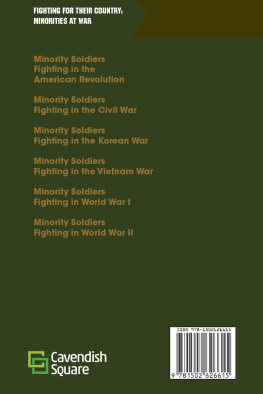
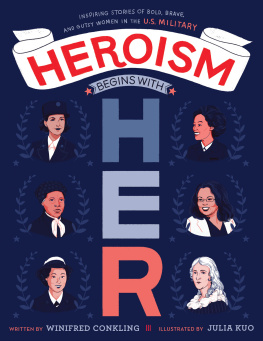
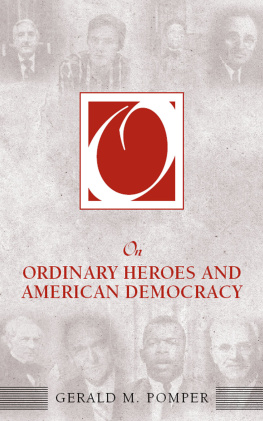

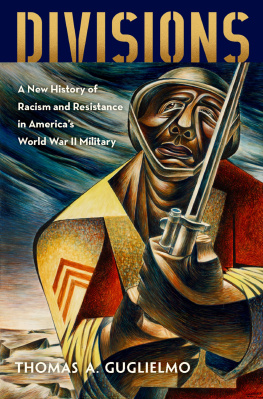
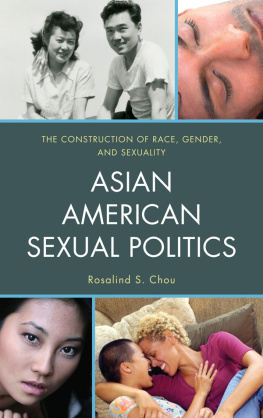
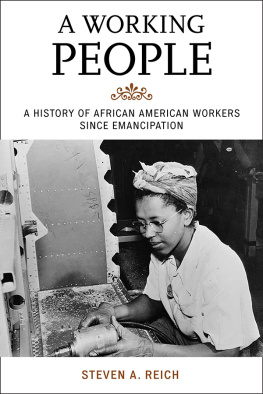
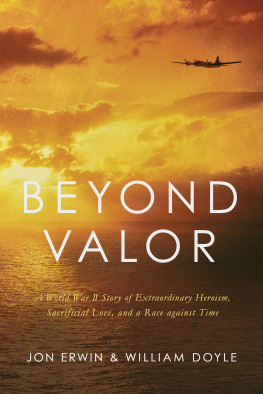
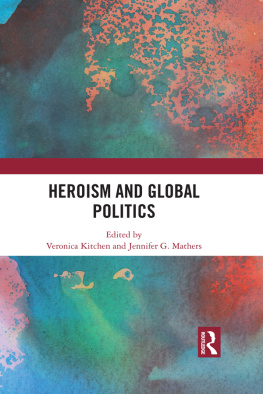


 The paper used in this publication meets the requirements of the American National Standard for Information SciencesPermanence of Paper for Printed Library Materials, ANSI Z39.48-1992.
The paper used in this publication meets the requirements of the American National Standard for Information SciencesPermanence of Paper for Printed Library Materials, ANSI Z39.48-1992.